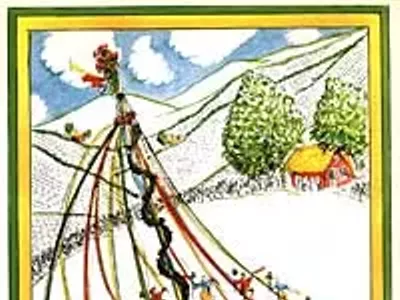
Audio By Carbonatix
[
{
"name": "GPT - Leaderboard - Inline - Content",
"component": "35519556",
"insertPoint": "5th",
"startingPoint": "3",
"requiredCountToDisplay": "3",
"maxInsertions": 100,
"adList": [
{
"adPreset": "LeaderboardInline"
}
]
}
]
Luther T. Farrell, the 15-year-old African-American narrator, seems all but predestined to become a master hustler. He’s got an $85,000 car titled in his name, a handful of credit cards and a carefully honed sense of survival.
Bucking the Sarge follows one of the rudimentary plotlines of young adult fiction — clever kid chases his dreams, outwitting and conquering corrupt adult forces — but the harshness of Luther’s world is unremitting, and surprisingly grim for the genre. There’s casual violence toward those who are weakened by illness or old age. And Luther’s mom, the "Sarge" in the story, has taught her son how to hurt people in untraceable ways:
Even dreams of solvency are infected by nightmares of greed and power. Curtis paints a ghetto-targeting advertisement by a lawsuit-happy attorney in tones of gleeful, dead-accurate satire:
"The commercial showed [actors portraying clients] standing together counting big rolls of cash while the American flag waved in the wind and a band played God Bless America. An announcer said, ‘Attorney Dontay Orlando Gaddy is on our side, and remember, big or small, he will sue ’em all!’"
Both of Curtis’ previous books examined the sustaining power of family, either in terms of blood relation, or the sense of communal family culled by a child’s growing awareness of black history and culture. Luther’s story is one of self-reliance and eventual victory over dire situations — his "bucking" of Sarge provides the book with a convulsively funny, joyous finale. But what lingers after reading it is the bitter taste of corruption, the uneasy sense that the American economic system, which finally allows Luther his freedom, also ensures the proliferation of vicious emperors like Sarge. That Luther’s smart enough to recognize and work the angles without sinking into cynicism is reason enough to recommend Bucking the Sarge to middle-school and older kids. That Curtis manages to make an ostensible children’s book into an incisive commentary on the eternal seduction of money and power is an unexpected bonus.
Eric Waggoner writes about books for Metro Times. Send comments to letters@metrotimes.com.





